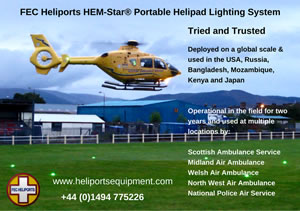Smiths Detection2007-09-14 15:13:22
German Ministry of Defence selects Smiths Detection Lightweight Chemical Detector to protect Armed Forces
SMITHS Detection has been awarded a contract to supply up to 50 Lightweight Chemical Detectors (LCD) to the German Federal Office of Defence Technology and Procurement, BWB, for use by the German Army.
The LCD, which can detect a wide range of chemical warfare agents and toxic industrial chemicals, has been designed as a compact, wearable detector that provides personal protection for troops. Germany has become the first European country to specify a new variant of the LCD that allows users to see an identification of the deadly agent displayed on a screen, when the unit alarms.
The addition of the liquid crystal display screen and programming buttons also gives troops a new level of equipment control, enabling the unit to be configured to meet individual requirements. Improved links have also been provided for applications requiring the LCD to be networked within a battlefield area communications system.
Stephen Phipson, Group Managing Director of Smiths Detection said: “LCD is setting the technological standard for current and future generation NBC products, having been selected within recent months by Germany, three Scandinavian countries and by the U.S. DoD for its M4 JCAD programme. The German Ministry of Defence created a demanding requirement and it has been a considerable achievement to meet its specifications with the development of an established product. “
The German defence contract includes options to purchase additional quantities of the LCD to meet future requirements of both its Army and Navy.
Damian Tracey, President of Smiths Detection – Military, commented: “The BWB demanded some of the most advanced technological features and it is a credit to the engineering skills in Smiths Detection that this version of LCD achieved its goals. The product was thoroughly tested by the specialist German CBRN Defence Research Establishment, WIS, in Munster and is now ready to enter service.”
SMITHS Detection has been awarded a contract to supply up to 50 Lightweight Chemical Detectors (LCD) to the German Federal Office of Defence Technology and Procurement, BWB, for use by the German Army.
The LCD, which can detect a wide range of chemical warfare agents and toxic industrial chemicals, has been designed as a compact, wearable detector that provides personal protection for troops. Germany has become the first European country to specify a new variant of the LCD that allows users to see an identification of the deadly agent displayed on a screen, when the unit alarms.
The addition of the liquid crystal display screen and programming buttons also gives troops a new level of equipment control, enabling the unit to be configured to meet individual requirements. Improved links have also been provided for applications requiring the LCD to be networked within a battlefield area communications system.
Stephen Phipson, Group Managing Director of Smiths Detection said: “LCD is setting the technological standard for current and future generation NBC products, having been selected within recent months by Germany, three Scandinavian countries and by the U.S. DoD for its M4 JCAD programme. The German Ministry of Defence created a demanding requirement and it has been a considerable achievement to meet its specifications with the development of an established product. “
The German defence contract includes options to purchase additional quantities of the LCD to meet future requirements of both its Army and Navy.
Damian Tracey, President of Smiths Detection – Military, commented: “The BWB demanded some of the most advanced technological features and it is a credit to the engineering skills in Smiths Detection that this version of LCD achieved its goals. The product was thoroughly tested by the specialist German CBRN Defence Research Establishment, WIS, in Munster and is now ready to enter service.”
For more information contact:
64 Clarendon Road
Watford
Hertfordshire
WD17 1DW
United Kingdom
Tel: +44 1923 696555
Fax: +44 1923 696559
